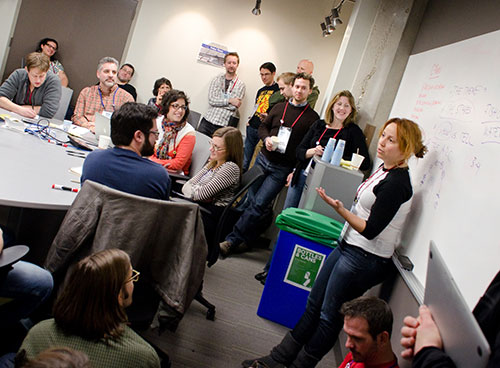It's a time to collect together the best minds to spark new ideas and spread old ideas. People from many different fields, many different walks of life, get together and share, teach, and learn about uniquely interesting topics.
Overview

The majority of the agenda will be determined by you, the attendees. If you have a talk you’d like to give, you sign up on the first day. Think of it as more of a collaborative brainstorming effort than a one-way presentation.
Frequently Asked Questions
Here’s everything we can think of that you might want to know about ORD Camp.
Feedback
What do previous attendees have to say? Read their thoughts.
Call for Attendance
ORD Camp

